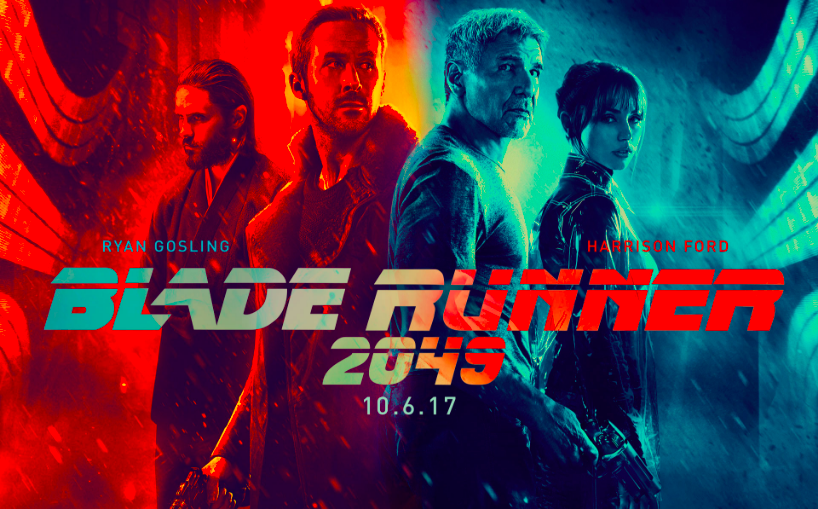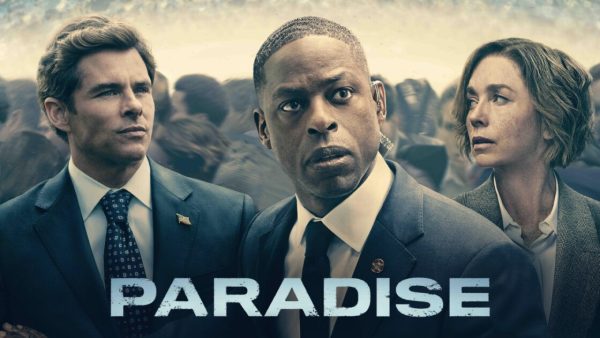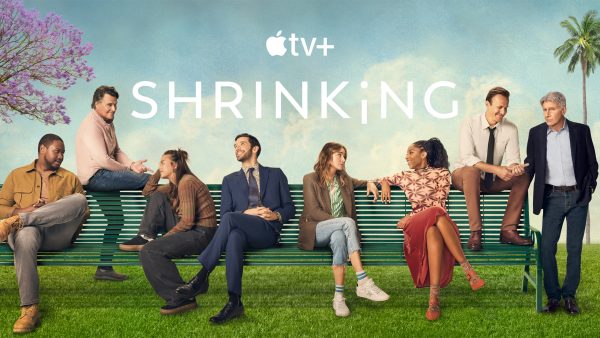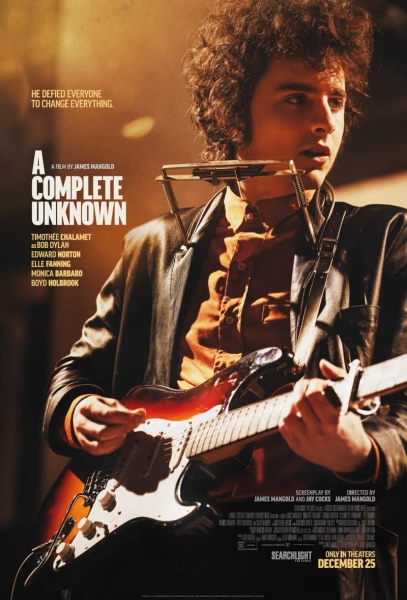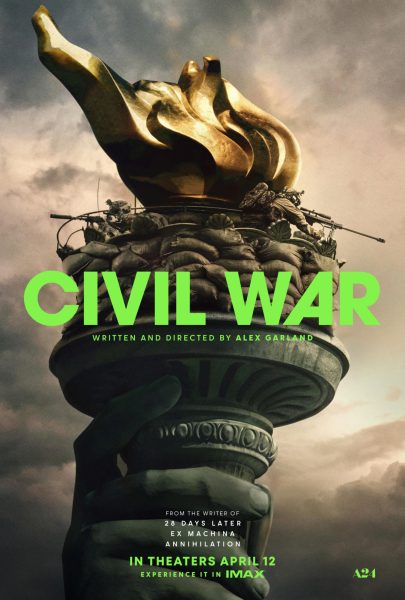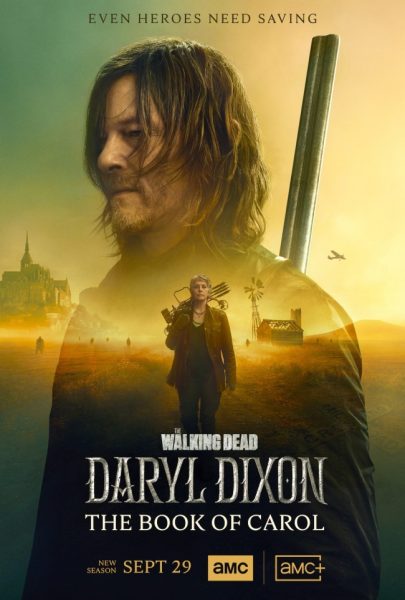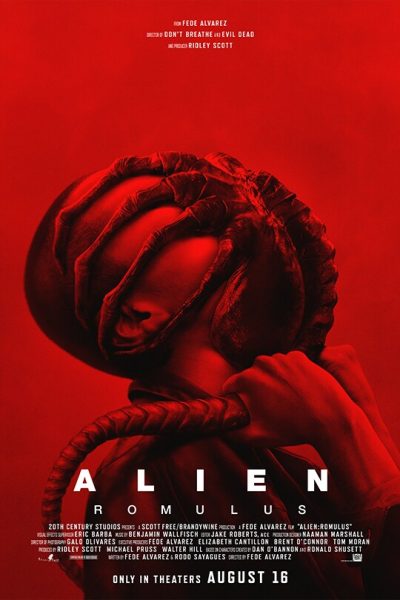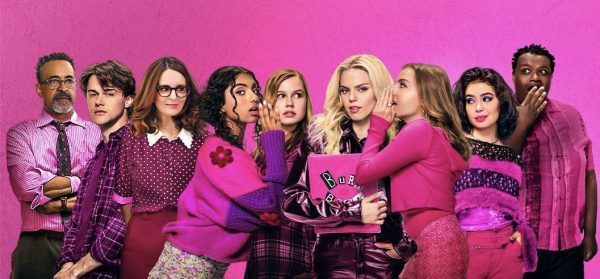Blade Runner 2049: An All Time Great
The universe is back and better than ever
Without question, the original Blade Runner directed by Ridley Scott is quite possibly the most influential science fiction film of all time (behind the mega hits of the Star Wars franchise), and undoubtedly one of the greatest films in history. While Star Wars created the science fiction blockbuster and is bigger now than ever before, Blade Runner created the wave of philosophical and artistic looks at the future.
Inspiring the likes of Children of Men, District 9, Her, and the more recent Netflix series Black Mirror, Blade Runner began the idea of examining the future and how such a future would affect humanity itself. The neo-noir classic also pioneered in the realms of score and special effects, as well as the idea of allowing ambiguity to encourage theorization and questioning the events of the plot and their aftermath.
Even today, die-hard fans around the world question whether or not Deckard, played by Harrison Ford, was a replicant. Now, 35 years later, the universe is back and better than ever.
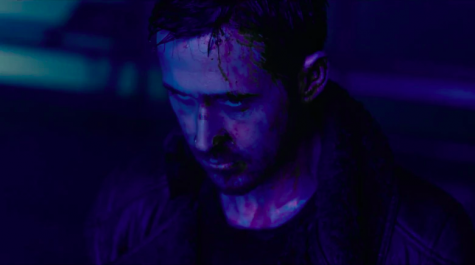
The story revolves around a new blade runner played by Ryan Gosling known as K (Kafka, anyone?). The story brings us to Los Angeles in 2049, where the defunct Tyrell Corporation has now been superseded by Niander Wallace (played by Jared Leto), an eccentric creator with a god complex. The film opens with Gosling’s character, K, tracking down a replicant (played by Dave Bautista) who is just trying to live a simple life as a farmer. From this point on, the story evolves into an epic journey where K must solve a mystery concerning the humanity and history of replicants, his own past, and what it truly means to be human. Robin Wright and Harrison Ford co-star.
With Denis Villeneuve (of Arrival, Sicario, and Prisoners fame) directing, Roger Deakins behind the camera, Ridley Scott executive producing, and Hans Zimmer composing, this film was always going to be a success. Despite the measly $31 million domestic opening, this new rendition of the blade runner universe is undoubtedly an instant classic. One of the artistic successes of this movie was its 2 hour and 43 minute runtime, which surely caused many viewers to stay away or become bored with the masterpiece. Frankly, this movie does what most films have strayed away from in the recent years: it takes its time. This allowed Villeneuve to completely flesh out the new world, create an atmosphere that stayed true to the original, while simultaneously expanding on it immensely.
Right from the get-go, it was clear that this film was not going to be a re-hashing of the original film with some hefty fan service thrown into the mix. Instead, Villeneuve created a wider and more developed atmosphere of the time period that built on the original, while also creating its own identity.
In the original, Ridley Scott chose to focus solely on the crowded future of the city of Los Angeles in the year 2019. Thirty years later in that universe, Villeneuve spends significant time in Los Angeles as well, yet expands past this environment into the desolate world around the city. He also introduced new technology to the universe, including an artificial intelligence that acts as Gosling’s love interest (played by Ana de Armas). Overall, Villeneuve used his platform to create a whole new world that builds on the concepts of Ridley Scott’s vision.
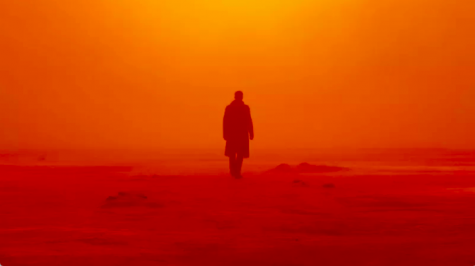
The most important aspect of this film that made it a success was its cinematography. Many cinephiles have waxed lyrical about the work of Roger Deakins and how his 13 Oscar nominations have ridiculously been barren in producing wins. However, his work on this film should bring an end to his drought. There are throw-away shots in this film that are more beautiful and intricate than entire oeuvres of lesser DPs. Take, for example, the opening shot, which lasts about 3-5 seconds or so. Or the brilliant shots of the city, or the desolate wasteland surrounding the city, or the beautifully lit lair of Niander Wallace, and on and on and on. These shots—coupled with the stunning Hans Zimmer/Benjamin Wallfisch score—simply take your breath away and create a dazzling atmosphere in the theater. Frankly, this film is one of the most beautiful films of all time.
However, no film is great without story and themes that make an audience think. Avoiding spoilers, the plot of this movie is incredibly winding and philosophical, truly getting into depth about what it means to be human, the future of artificial intelligence, and the conflict of humans versus replicants in this universe. I mean for God’s sake, how many films nowadays weave in the literary and philosophical genius of the likes of Vladimir Nabokov, Franz Kafka, and Ernest Becker? There are many twists and turns and explosions of emotion that keep the viewer guessing and questioning the real-life application of the themes. Plus, there are still many questions that have yet to be answered even after the film’s conclusion, leaving die hard fans with endless discussion and theorization for years to come.
As we continue down the laundry list of greatness that this film comprises, the performances across the board in this film were incredible. Ryan Gosling as agent K was fantastic as a stoic, almost forcibly emotionless agent for a lot of the film, reminiscent of yet more expansive than his work in Nicolas Refn’s Drive. This stoicism worked perfectly as the antithesis to his more emotive moments, causing these moments to have greater significance in his story. Leto as Niander Wallace was inimitably unnerving and intimidating. He pulls off this difficult combination of highly narcissistic and slightly self-conscious with the character that brings Wallace to life and fleshes out his motivation. Not to mention Harrison Ford legitimately brings one of his best ever performances, bringing an intensity and versatility that we frankly have not seen in years. Other notable performances include Robin Wright as Lieutenant Joshi, Sylvia Hoeks as Luv, Mackenzie Davis as Mariette, Dave Bautista as Sapper Morton, and Ana de Armas as Joi.
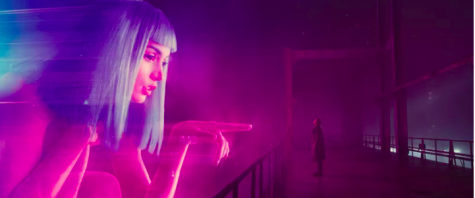
It would have been incredibly easy to reboot Blade Runner directly, merely continuing Deckard and Rachel’s story from the first movie or even (gasp) remaking it. And yet while hundreds of writers and filmmakers were inspired by Blade Runner, it’s hard to believe any of them could have found a way to expand its legacy as completely as Villeneuve does here with a movie that doesn’t feel at all repetitive. He’s in no way seeking to improve (although he does) or replace—the films now work together, enriching each other instead of mimicking. They ask timeless questions and, like all great films, refuse to give you all the answers, allowing viewers to debate and discuss their meaning instead of merely being passive recipients of mindless entertainment. In that sense, Blade Runner 2049 answers one of its own questions about what it means to be human—to have free thought—and how vital it is to appreciate art so clearly designed to enrich the soul.
This film is undoubtedly one of the greatest science fiction spectacles in history, building on the past while creating for the future. This film will be remembered and studied for years to come and will certainly go down as an all time great. If I were to give it a grade, Blade Runner 2049 would get 5/5 stars.

PJ Knapke is a senior at Glenbard West and a Columnist this year for the newspaper. His focus on is on film-related content, particularly reviews. He is...
